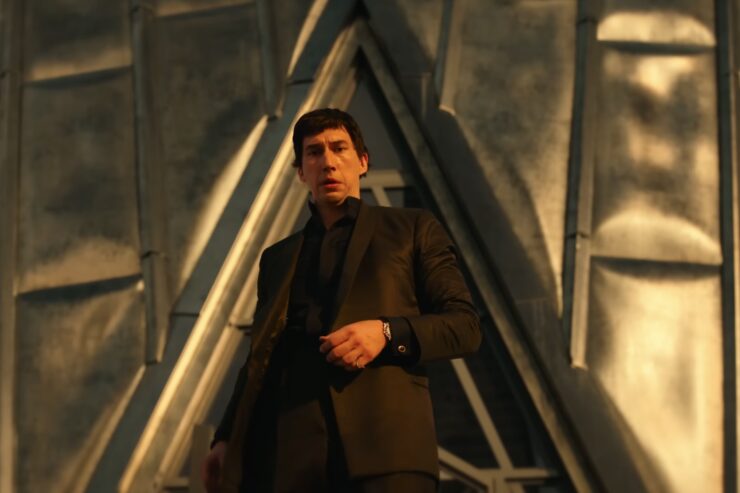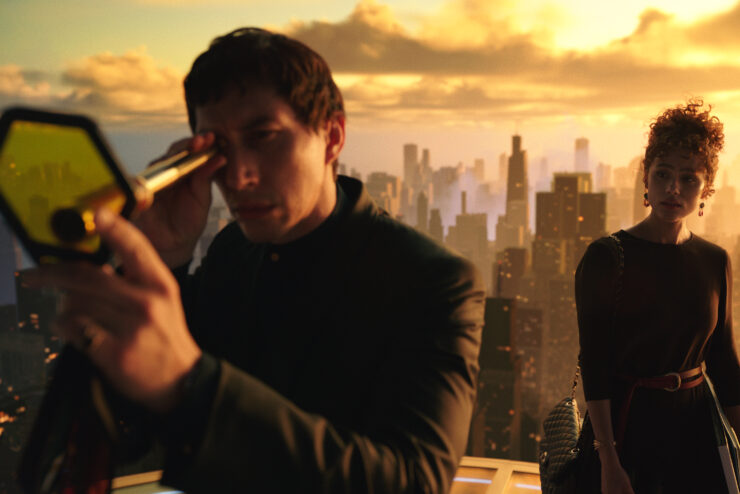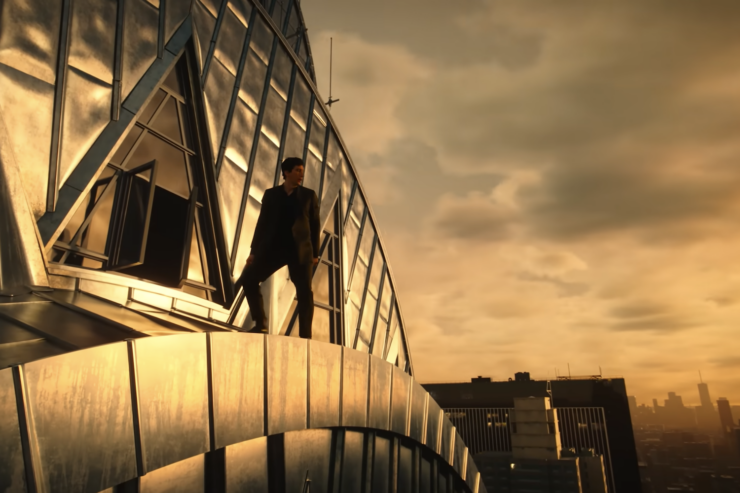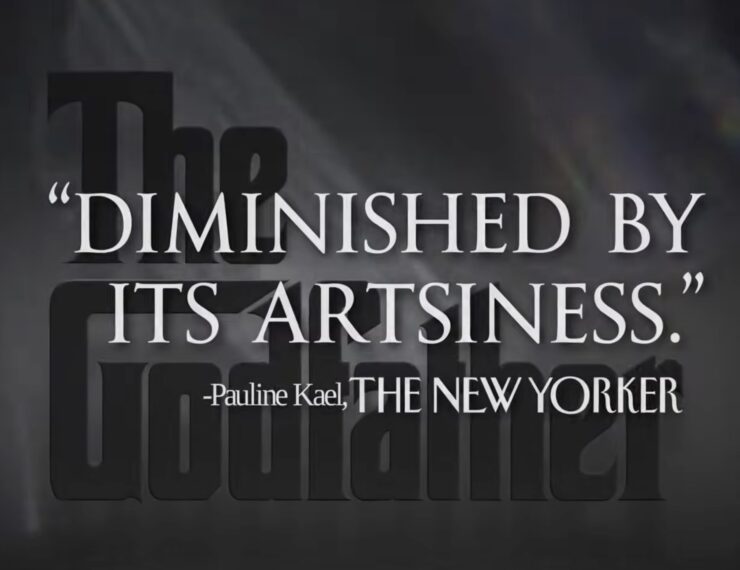According to a recent Vanity Fair piece, “Megalopolis has been taking shape inside Francis Ford Coppola’s mind for nearly half of his life.” The famed director made the movie entirely out of his own pocket, meaning he also had full creative control—no studio to answer to. The film makes its premiere later this month at Cannes, and a short peek has been released ahead of that premiere.
And it’s very short, focusing only on Adam Driver’s unfortunately coiffed character, Caesar Catilina, who can stop time—by yelling, “Time, stop!” which is perhaps not the most artful way to do things, but sure. After saving himself from hurtling over the lip of a building (sir, put on some better shoes for this moment!), he snaps his fingers, and time resumes.
It is a little confusing that time stops but Caesar doesn’t fall, given that the time stoppage appears not to affect him; one can only assume that his time-stopping somehow stops the… air? from moving? I’m probably not supposed to ask this many questions.
Coppola posted the clip to YouTube will the following text:
Here is an a clear, concise analysis of Megalopolis:
“A man balances precariously on a ledge high above a once-grand city in the opening scene of Francis Ford Coppola’s Megalopolis, and the movie that follows is – at least in part – about an entire civilization teetering on a similarly precarious ledge, devouring itself in a whirl of unchecked greed, self-absorption, and political propaganda, while a few bold dreamers push against the tide, striving to usher in a new dawn. The man is called Caesar (Adam Driver), like the Roman general who gave rise to the Roman Empire, Cesar the labor leader who organized California’s farm workers in the 1960s, and a few other notably great men of history. But he is also clearly an avatar of Coppola himself – a grand visionary witnessing a once-great thing (call it cinema if you must) withering before his very eyes and determined to revivify it. And, after decades of planning, Megalopolis the movie is the powerful elixir he has produced: a sweeping, big-canvas movie of provocative ideas and relentless cinematic invention that belies its maker’s 84 years of age. Coppola seems to have been born-again by a strike of filmic lightning, and the movie – no, the experience (complete with in-theater “live cinema”) – that has emerged feels at once the work of a film-school wunderkind unbowed by notions of convention, but also the work of a wizened master who knows much about life and the ways of the world. To paraphrase Coppola himself speaking decades ago about his Apocalypse Now, Megalopolis isn’t a movie about the end of the world as we know it, it is the end of the world as we know it. Only, where Apocalypse left us in a napalm-bombed fever-dream haze, Megalopolis, surprisingly and movingly, bestows on us a final image glowing with hope for the future.”
Do you want to know who wrote this “clear, concise analysis,” as presumably it wasn’t Coppola, unless he’s writing about himself in the third person? I kinda do.
The film also stars Nathalie Emmanuel (Game of Thrones) as the socialite daughter of a powerful and, inevitably, corrupt mayor played by Giancarlo Esposito (The Mandalorian). The cast also includes Aubrey Plaza, Shia LaBeouf, Jon Voight, Jason Schwartzman, Laurence Fishburne, Kathryn Hunter, Grace VanderWaal, Chloe Fineman, James Remar, D.B. Sweeney, and Dustin Hoffman.
It seems that Coppola has pulled from everything he’s ever read about or experienced in order to make this film—a list of influences he gave to Vanity Fair includes everyone from Shakespeare to Hitchcock to Moses to H.G. Wells, along with 9/11 and Roman history. It does not yet have U.S. distribution.













